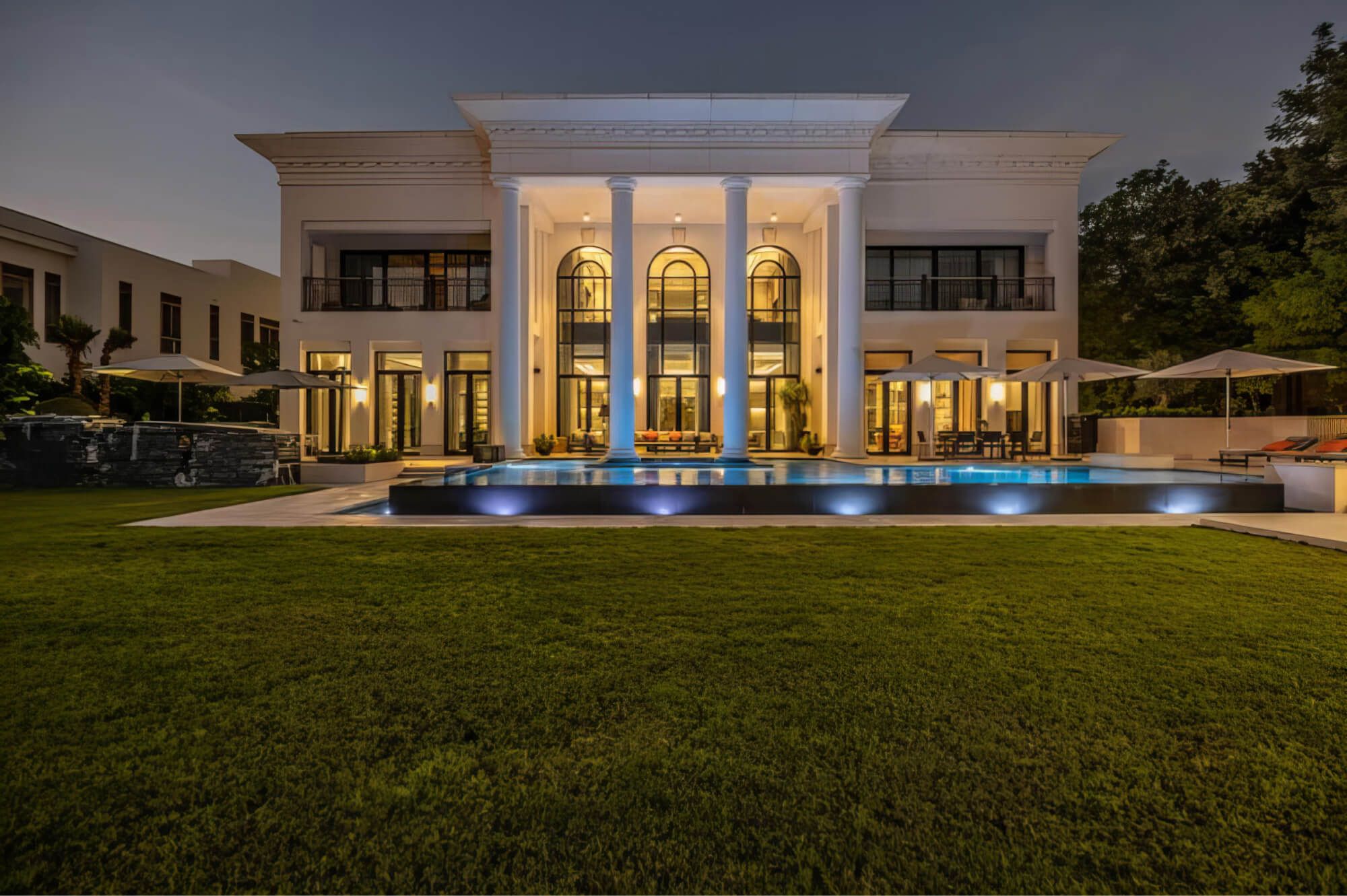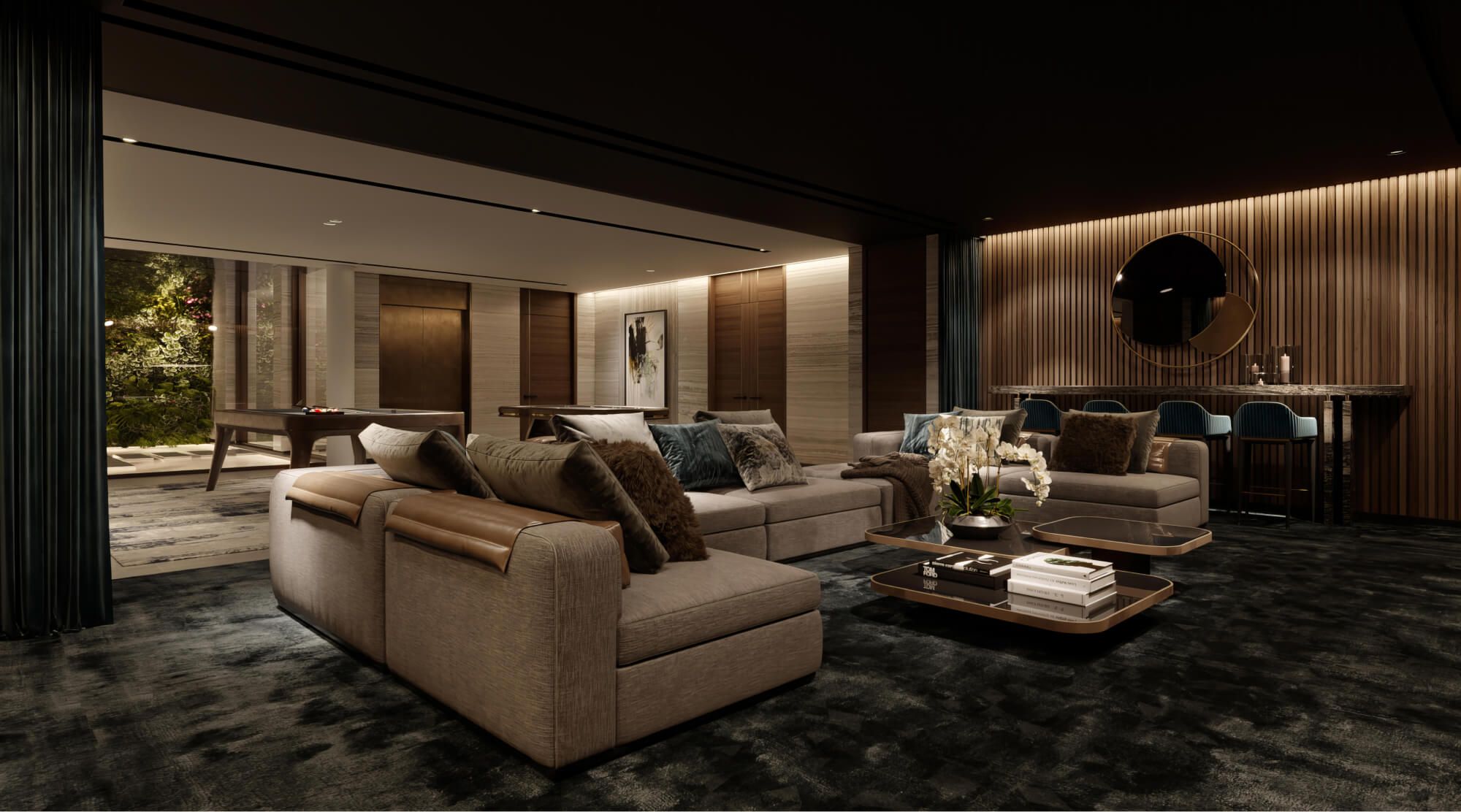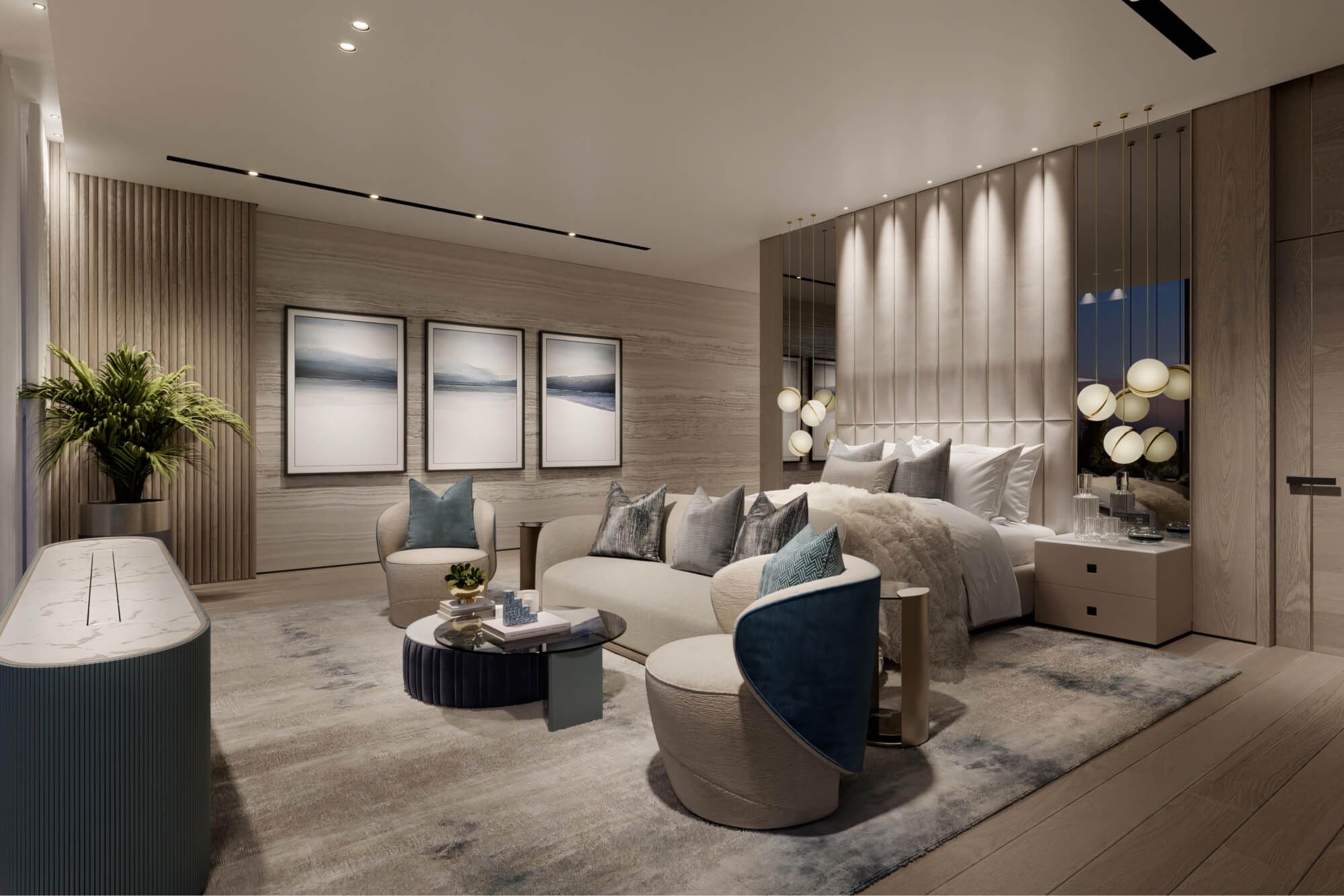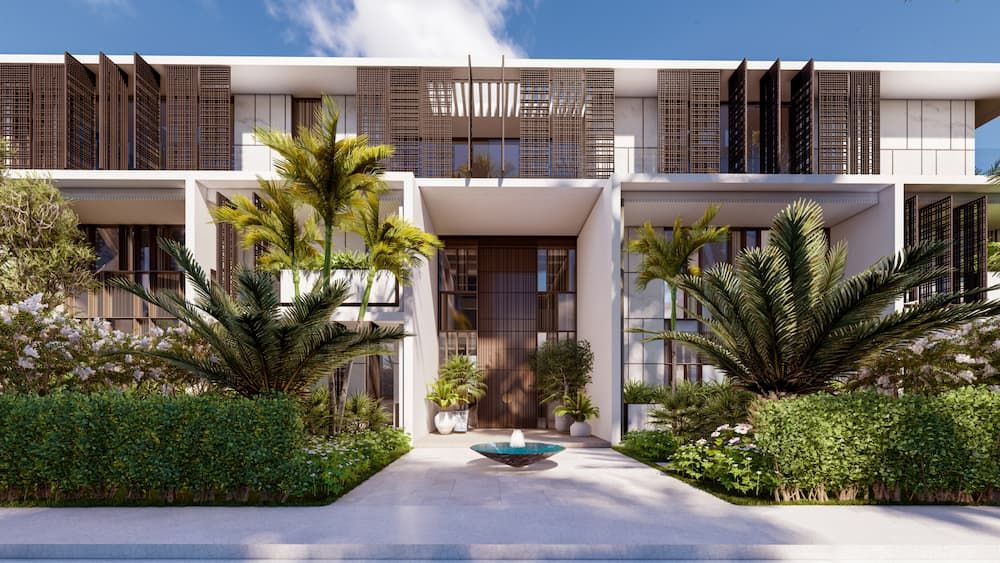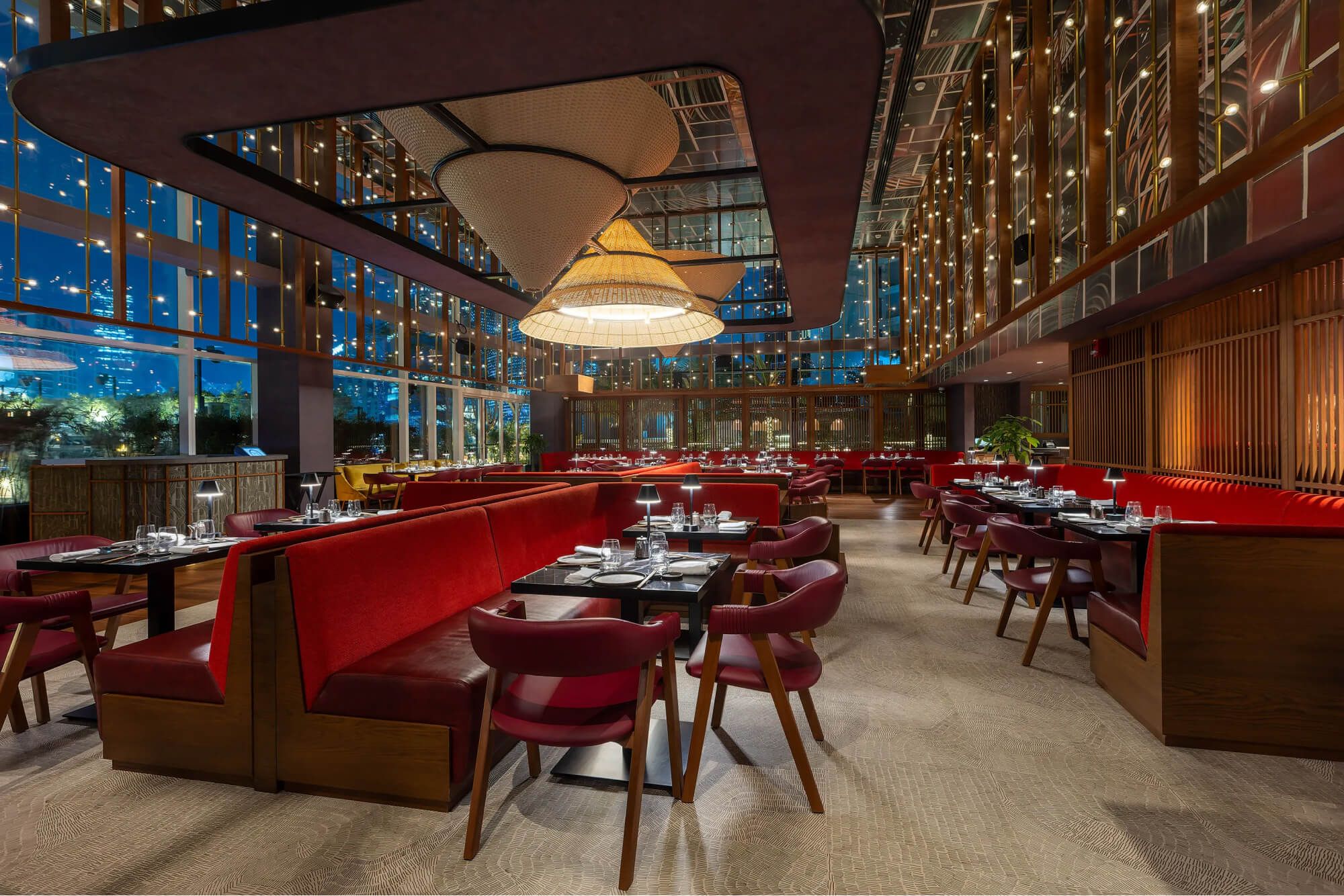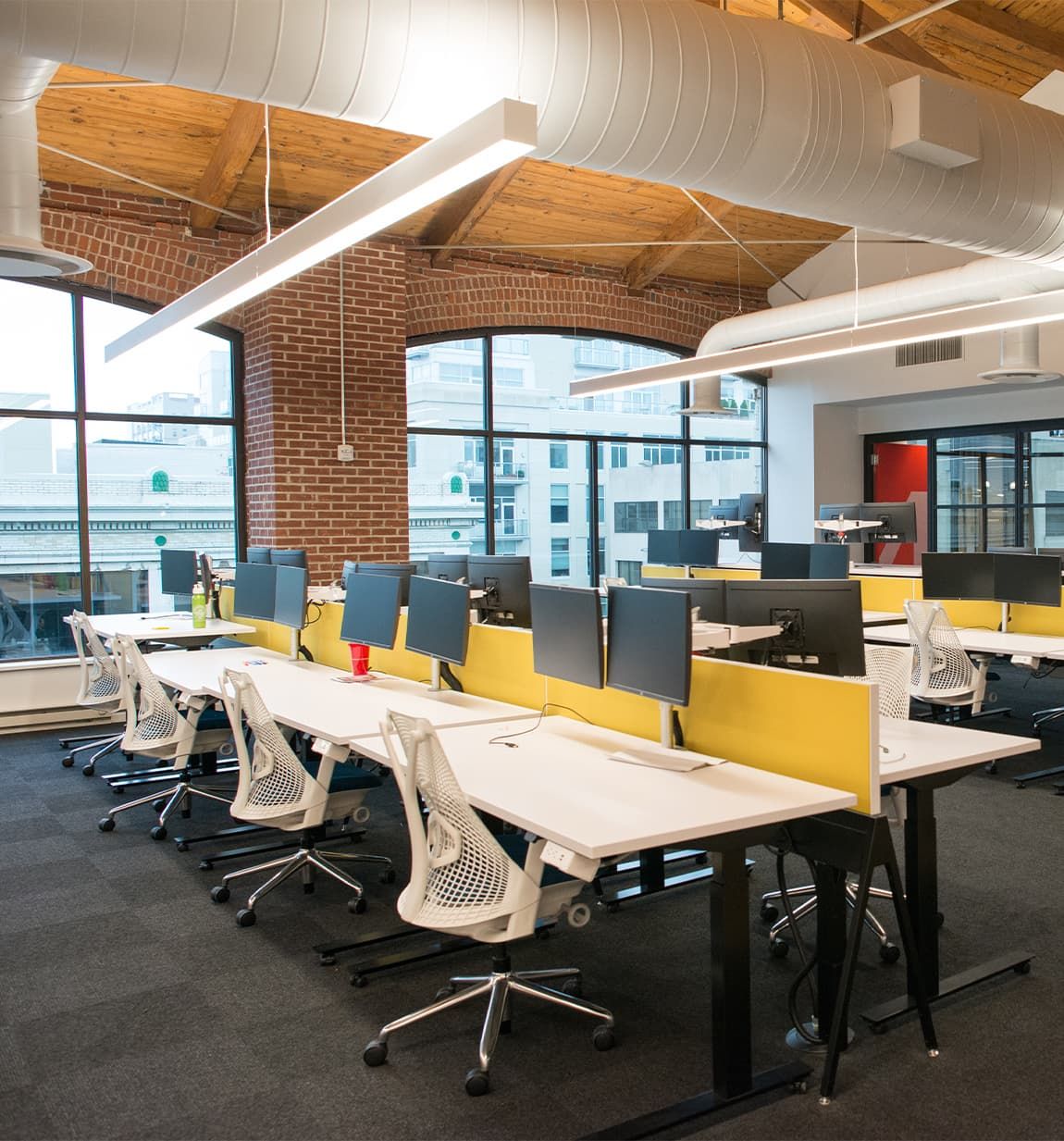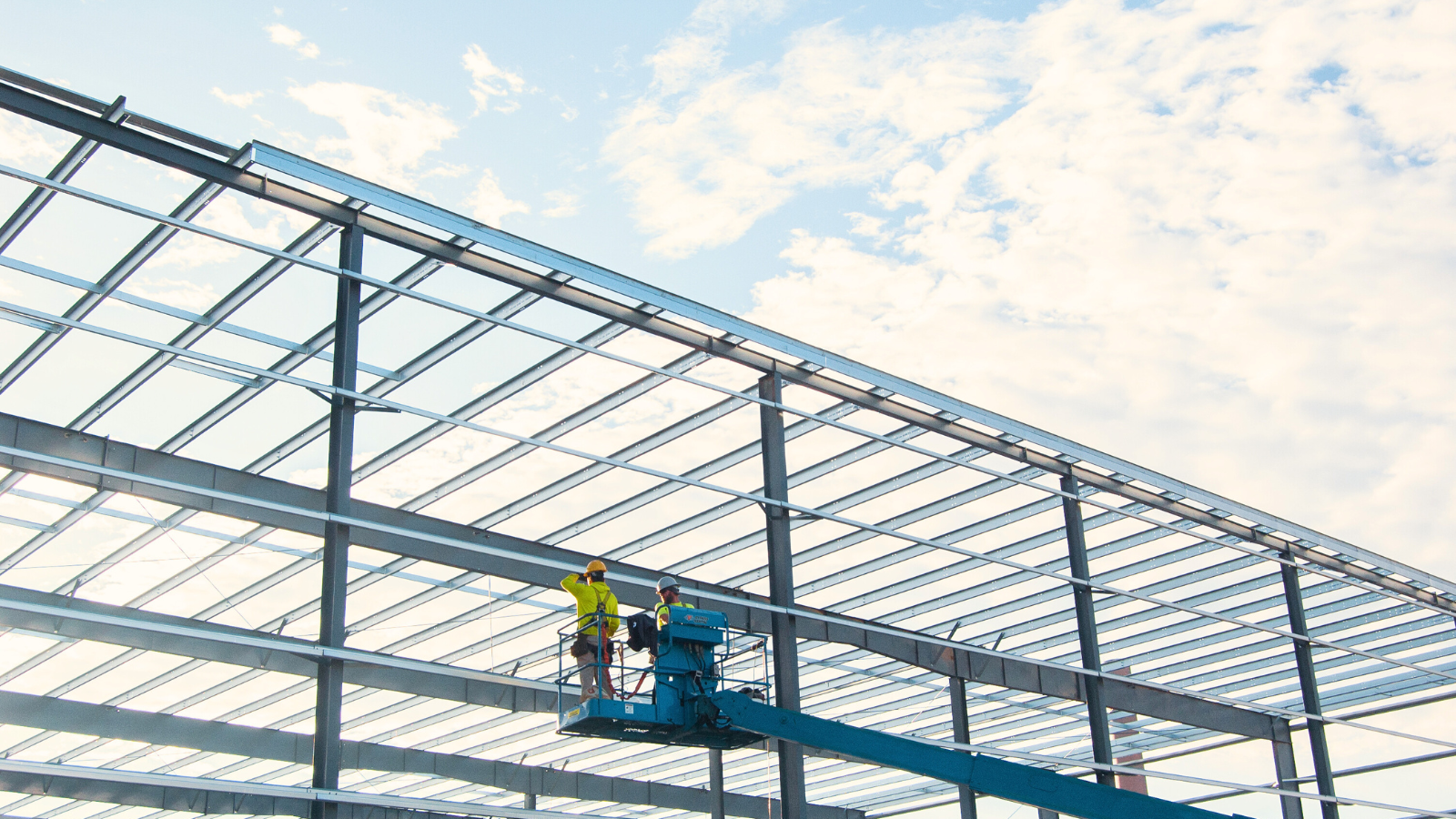Façade engineering is quickly becoming one of the most important aspects of modern construction. The façade—essentially the building’s outer shell—does so much more than just look good. It’s key to energy efficiency, regulating indoor temperatures, structural durability, and the overall sustainability of a building. As the world pushes for lower carbon footprints and better building performance, façade systems have adapted, embracing cutting-edge technologies and innovative designs to meet these demands.
In this blog, we’ll dive into the latest innovations in façade engineering, explore current trends, discuss the role of façade consultants, and break down the benefits and best practices for creating sustainable, high-performance façades in today’s construction world.
What is Facade Engineering?
Facade engineering is a multidisciplinary field that blends elements of architecture, structural engineering, material science, and environmental analysis to create a building’s exterior. The facade is not merely the "face" of the building, but a sophisticated system that influences the energy performance, structural integrity, and occupant comfort within the building.
A well-designed facade can greatly enhance a building’s energy efficiency by controlling solar gain, improving natural lighting, optimising ventilation, and regulating temperature fluctuations. In today’s environmentally conscious construction landscape, facade engineers are tasked with designing systems that not only meet stringent environmental standards but also fulfil functional and structural requirements. These engineers use advanced technologies to ensure that building envelopes are both aesthetically pleasing and energy efficient.
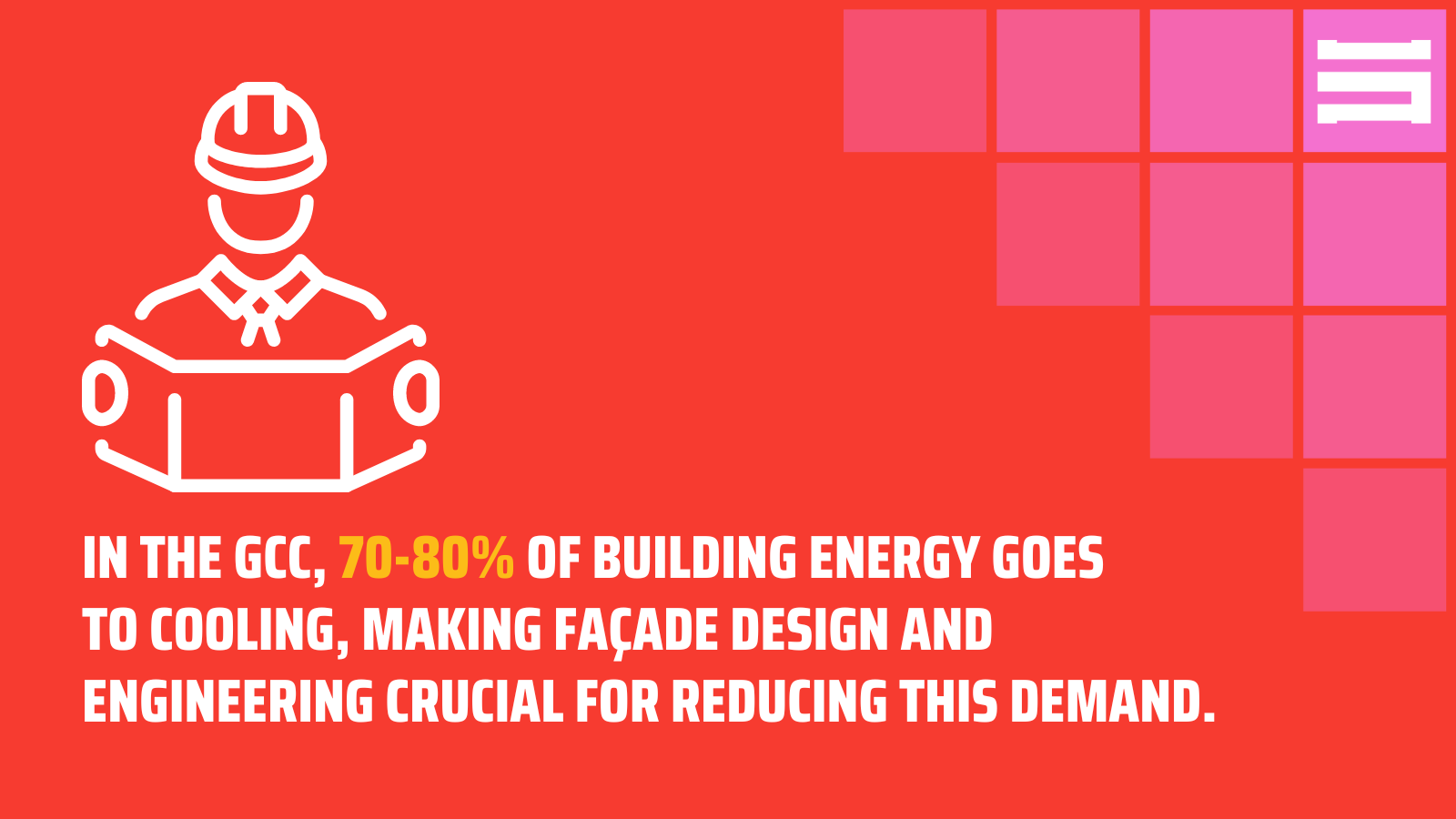
In the GCC region, façade engineering plays a vital role in creating energy-efficient buildings, particularly in addressing the high cooling demands driven by the extreme climate. In 2023, it was reported that around 70-80% of the total energy consumption in buildings is used for cooling, which makes façade design and engineering a crucial factor in reducing this demand.
What are the Key Stages in Facade Design?
The design and implementation of a facade system require careful planning, involving collaboration between architects, engineers, and material specialists at various stages. Each phase in facade design is essential to ensuring that the building envelope performs optimally, adheres to regulatory standards, and contributes to the project’s sustainability goals.
- Concept Development: The concept stage is where the architectural vision of the building takes shape. At this point, the facade’s functionality is discussed, including its energy performance, natural light optimisation, and impact on the environment. Close collaboration between architects and facade engineers ensures that the facade supports both the form and function of the building.
- Material Selection: Choosing the right materials for a facade is a critical decision that affects the building’s energy efficiency, durability, and aesthetic appeal. Engineers must consider factors such as thermal performance, sustainability, and structural integrity. For instance, high-performance glass can reduce heat loss, while recycled metals or natural stone materials help lower the building’s environmental footprint.
- Performance Modelling: Advanced computational tools enable facade engineers to simulate real-world conditions—such as wind loads, thermal stresses, and solar radiation—allowing them to optimise the facade’s performance before the construction project begins. This stage is essential for minimising material waste, improving sustainability, and ensuring the building's envelope meets performance criteria.
- Installation and Quality Assurance: After the design is finalised, the next step is overseeing the installation process. Facade engineers ensure that materials and workmanship meet the required standards, while also checking that the facade integrates seamlessly with the building’s other systems. Quality assurance at this stage is crucial for avoiding costly errors or future performance issues.
What is the Role of a Facade Engineering Consultant?
Facade engineering consultants are integral to the success of facade projects, offering specialised knowledge and technical expertise to guide the design, material selection, and installation processes. They ensure that the facade meets both the aesthetic aspirations of the architects and the performance expectations of engineers and building owners.
What are the Key Responsibilities of Facade Engineering Consultants?
- Design Evaluation and Optimisation: Consultants evaluate various design options early in the process to ensure the facade will meet performance standards. They identify potential problems, optimise the design for better performance, and ensure that the facade complements the overall architectural vision.
- Material Testing and Compliance: Consultants recommend materials that comply with both performance and regulatory requirements. They also conduct material testing to ensure that the facade system can withstand environmental stresses while adhering to local building codes.
- Performance Modelling and Simulation: By leveraging simulation tools, facade consultants evaluate how the facade will perform under different environmental conditions. This proactive approach allows engineers to make necessary adjustments before the construction project begins, reducing the risk of future issues.
- Regulatory Guidance: Compliance with building codes is especially important in high-rise or complex structures. Consultants ensure the facade adheres to safety standards related to fire resistance, structural integrity, and thermal performance, keeping the project aligned with both local and international regulations.
- Project Oversight and Installation Management: During construction, facade consultants provide oversight, ensuring quality control and adherence to design specifications. Their involvement ensures that potential issues are resolved quickly, avoiding costly delays or reworks to be addressed by cost managers.
What are the Benefits of Innovative Facades?
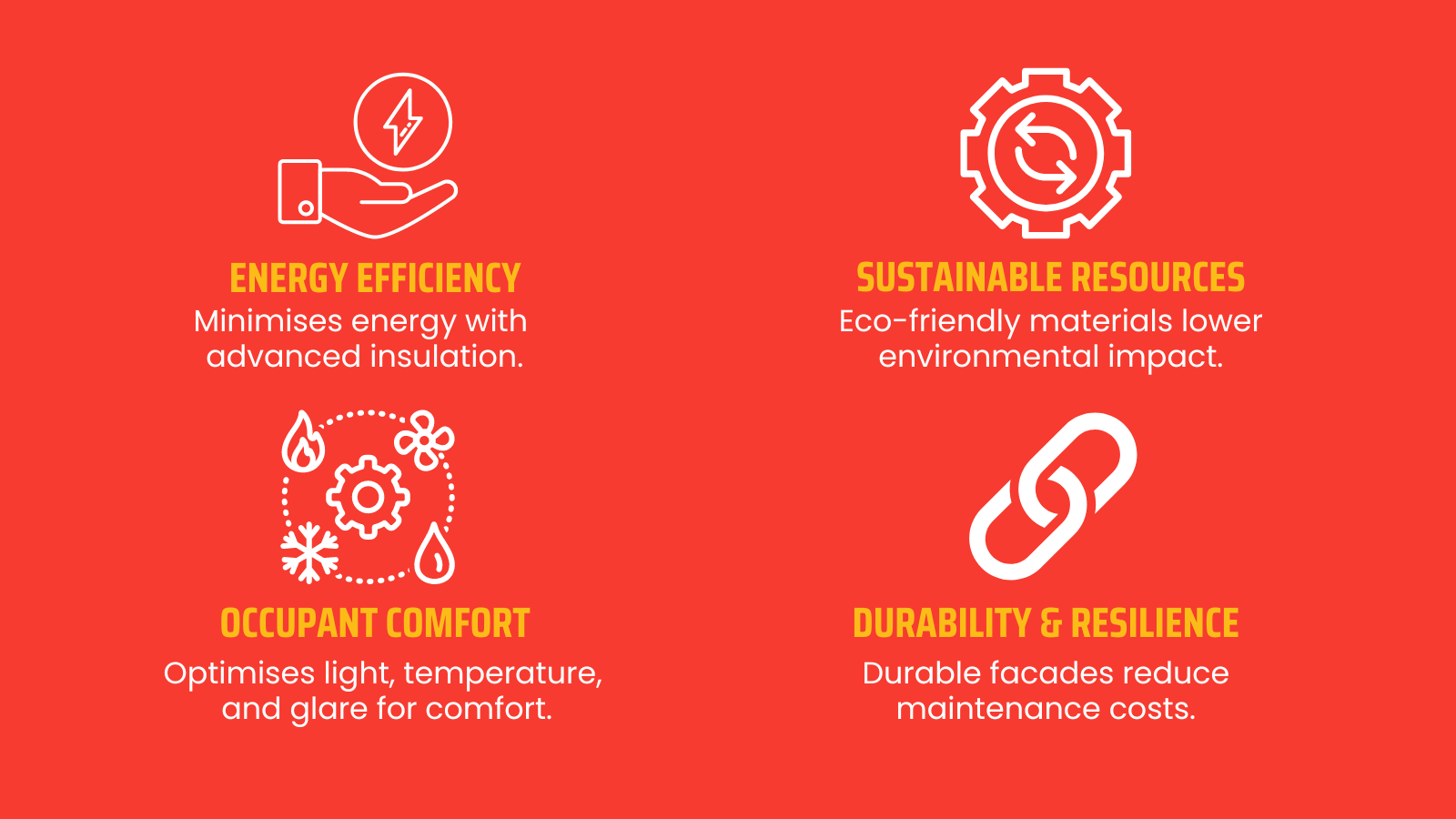
Modern facade systems offer numerous benefits beyond aesthetics and structural integrity. Key advantages include:
- Energy Efficiency: High-performance facades minimise energy loss through advanced insulation and shading mechanisms, significantly reducing heating and cooling costs.
- Sustainable Resources: The use of eco-friendly materials, such as recycled metals or timber, in combination with energy-efficient designs, helps to reduce the environmental impact of the building.
- Occupant Comfort: Facades that optimise natural light, control glare, and regulate temperature contribute to a healthier and more comfortable indoor environment for occupants.
- Resilience and Durability: Advanced materials and construction techniques enhance the facade’s ability to withstand environmental stresses, reducing maintenance costs and prolonging the building’s lifespan.
What are the Best Practices for Façade Engineering in the Middle East?
Achieving a high-performing façade in the Middle East requires adherence to several best practices tailored to the region’s specific environmental conditions and architectural demands. These include:
- Integrated Design Process: In the Middle East, where climate and aesthetics are both paramount, close collaboration between architects, façade engineers, and material specialists is critical from the earliest stages of design. Integrating local expertise on climate-responsive design ensures that façades are optimised for both aesthetics and long-term performance, considering the region’s intense heat, dust, and high solar radiation.
- Early-Stage Simulation: Given the extreme temperatures and high solar exposure in much of the Middle East, conducting performance simulations early in the design process is crucial. Simulations can help forecast thermal performance, energy efficiency, and shading needs, allowing for adjustments that maximise cooling efficiency and minimise solar heat gain. This proactive approach can also help mitigate the need for costly alterations later in the project and ensure compliance with stringent local energy codes.
- Shading and Glazing Solutions: Façade designs in the Middle East often require innovative shading and high-performance glazing solutions to cope with the region’s harsh sunlight. Best practices include incorporating dynamic shading systems, such as perforated screens or brise-soleils, and using advanced glazing technologies like low-emissivity (low-E) glass. These solutions not only reduce cooling loads but also improve occupant comfort and reduce glare, essential for achieving sustainability certifications such as LEED or Estidama.
- Sustainable Material Selection: Selecting materials that can withstand the region's harsh environment, such as corrosion-resistant metals, UV-resistant coatings, and reflective materials, is vital for long-term performance. Additionally, choosing sustainable materials with low embodied energy, such as recycled metals or locally sourced stone, can significantly reduce a building’s environmental footprint. Using materials that respond well to the high temperatures and intense sunlight also extends the lifecycle of the façade, reducing maintenance costs over time.
- Thermal Performance and Insulation: Façades in the Middle East must be designed with an emphasis on insulation and thermal performance. High levels of thermal insulation, along with ventilated façades or double-skin systems, can help mitigate the region's heat and reduce the reliance on air conditioning. Implementing thermal breaks and using high-albedo (light-reflecting) materials can further improve energy efficiency and occupant comfort.
- Lifecycle Assessment: In a region where sandstorms, high humidity in coastal areas, and temperature fluctuations are common, conducting a thorough lifecycle assessment (LCA) becomes even more critical. Engineers and architects should prioritise durable, corrosion-resistant, and low-maintenance materials to ensure that the façade remains functional and aesthetically pleasing over time. LCAs help in selecting materials that meet both sustainability goals and the practical demands of the Middle Eastern climate.
- Compliance with Local Building Codes: Façade engineering in the Middle East must align with local building regulations, such as the Dubai Green Building Regulations or Saudi Arabia’s Saudi Vision 2030 initiatives, which emphasise sustainability and energy efficiency. Adhering to these standards ensures that the building not only performs well in terms of energy efficiency but also contributes to the region’s broader goals of reducing carbon emissions and promoting environmentally friendly construction. Read more about global sustainable construction trends here.
What are the Emerging Trends in Facade Engineering?
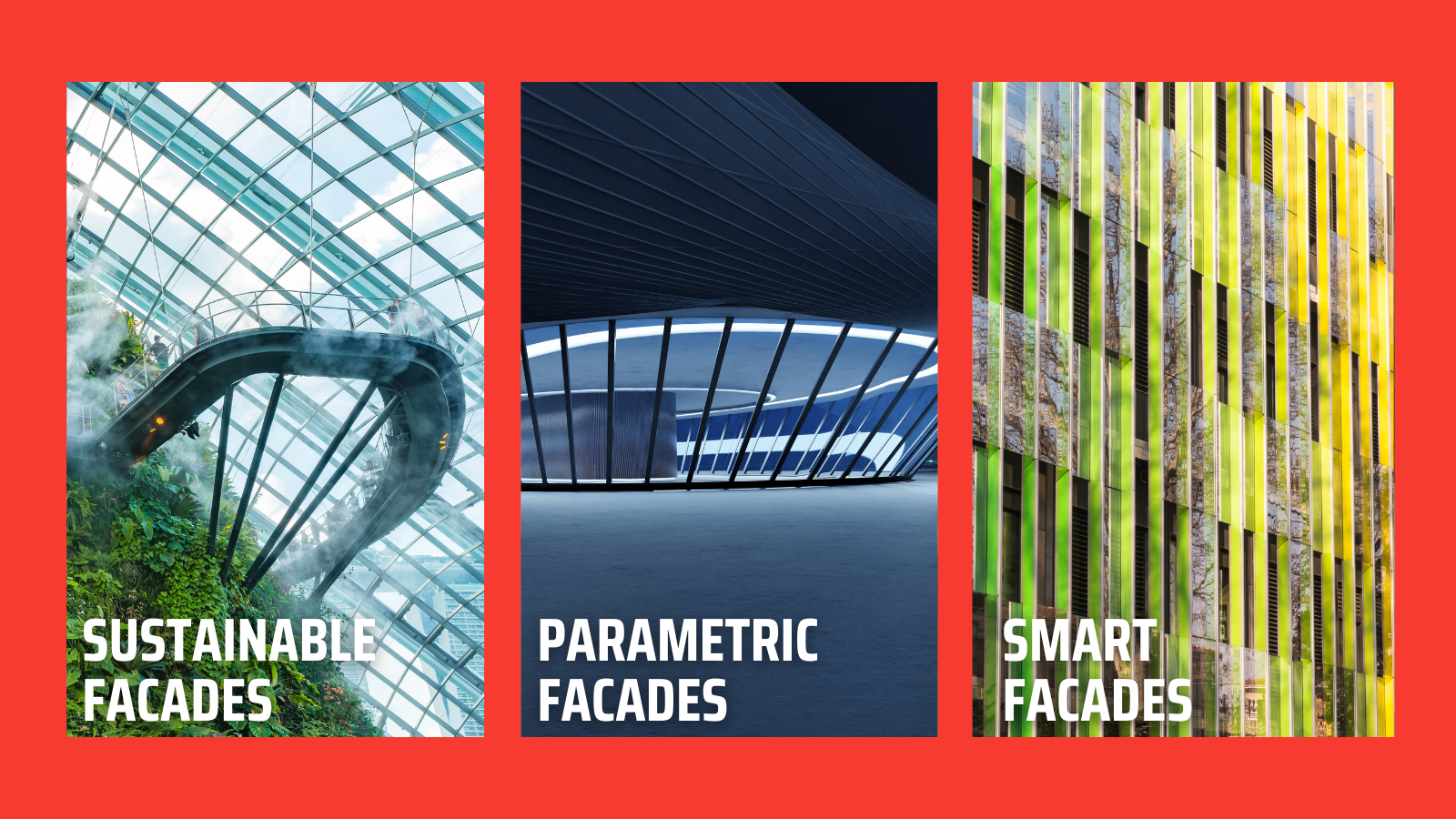
- Sustainable and Biophilic Facades: Sustainability has become a primary concern in facade engineering, with a focus on integrating natural elements into building designs. Biophilic facades, featuring green walls or timber cladding, offer both functional and aesthetic benefits. These facades regulate indoor climates, improve air quality, and promote biodiversity, aligning with the growing trend towards creating healthier, more sustainable urban environments.
- Parametric and Adaptive Facades: Parametric design tools allow engineers to create complex, customisable facades that are both visually stunning and highly efficient. Adaptive facades, such as kinetic systems that respond to sunlight or wind, represent a cutting-edge approach to improving building performance in real-time. These dynamic facades can adjust to environmental changes, reducing the building’s reliance on mechanical systems for heating and cooling.
- Smart Facades and Advanced Technologies: Smart facades equipped with sensors and automation technologies can adjust shading, ventilation, and thermal properties based on environmental conditions. This innovation not only reduces energy consumption but also enhances occupant comfort by creating a more responsive and adaptive building envelope.
Understanding Scenarios and Applications of Facades
Facade engineering innovations are being applied in a range of building types, from high-rise offices to residential complexes and cultural landmarks. Consider the following real-world applications:
- Commercial Buildings: Office towers often feature parametric facades that optimise natural light while reducing heat gain, improving energy efficiency for large, multi-storey structures.
- Residential Buildings: In urban settings, biophilic facades incorporating green walls or terraces help reduce the urban heat island effect while enhancing residents’ quality of life.
- Public and Cultural Spaces: Museums, galleries, and civic buildings increasingly use complex 3D facades to create visually stunning, energy-efficient structures that engage the public while minimising their environmental impact.
Conclusion
Facade engineering continues to evolve, driven by the need for sustainability, technological advancements, and innovative design. Modern facades are dynamic systems that contribute not only to a building’s aesthetic appeal but also to its energy efficiency and long-term sustainability. With advanced materials, smart technologies, and sustainable design practices, facade engineers are transforming the way buildings interact with their environments, setting new standards for performance and environmental responsibility in construction.
About us
Stonehaven is a trusted project management company and construction consultant based in Dubai, offering comprehensive construction management services across the UAE with offices located in Dubai, UK and Sri Lanka. As one of the leading project management companies in Dubai, we manage projects from inception to completion, ensuring quality, efficiency, and cost-effectiveness at every stage.
We deliver value through expert project management consultancy services, tailored to meet the unique needs of each client. Our core services include Cost Management, Project Management, Construction Supervision, Engineering Support, Design Support, and Marketing & Communications. Whether you’re looking for construction consultants or project managers in the UAE and wider GCC region, Stonehaven is your trusted partner for achieving excellence in your next project.
At Stonehaven, we provide expert façade engineering support that harmonises design, functionality, and sustainability. By collaborating closely with architects, engineers, and material specialists, we ensure that every façade system we support is expertly crafted to meet the unique challenges of modern construction. Our comprehensive expertise in design evaluation, material testing, performance modelling, and regulatory compliance ensures that our façades not only meet aesthetic and functional requirements but also contribute to sustainable urban development.
Get in touch with us today to learn how our expert façade engineering support can elevate your next project.

